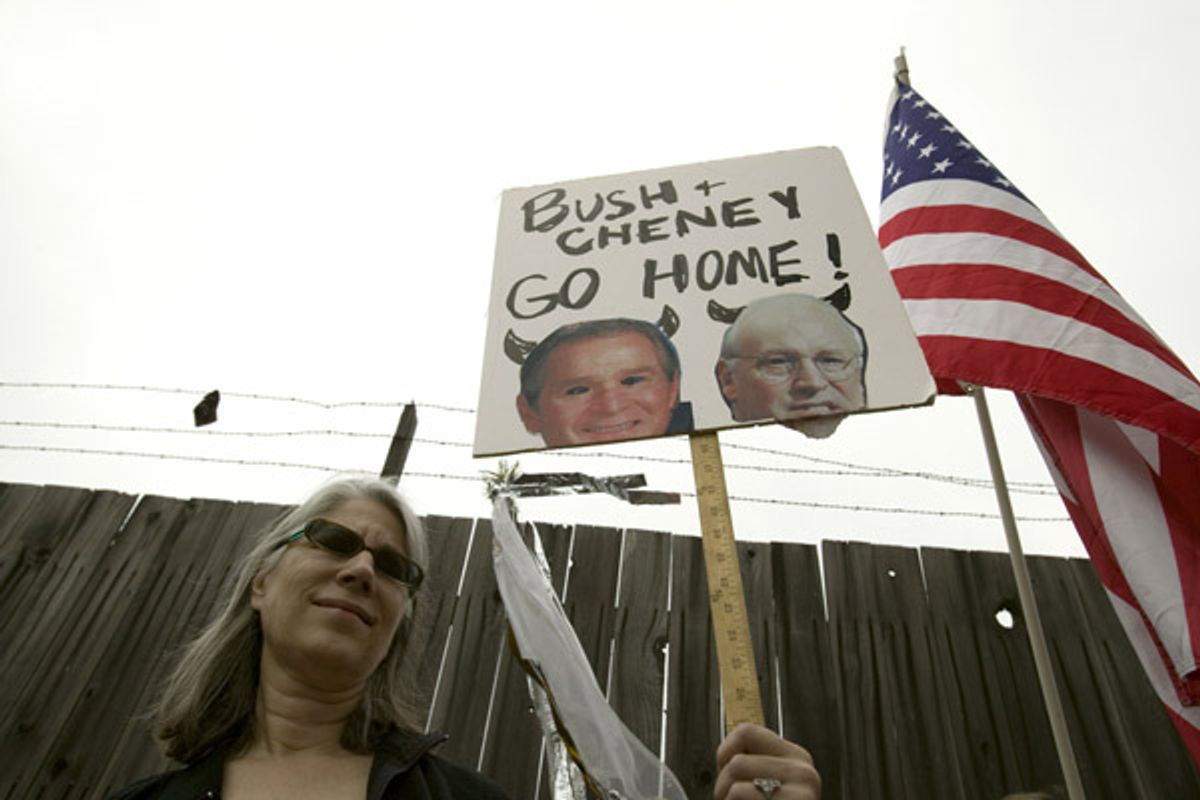 Those conservatives are appalling: They couldn’t care less if people get hurt. And liberals? They think anything goes, and have no concept of the meaning of loyalty.
Those conservatives are appalling: They couldn’t care less if people get hurt. And liberals? They think anything goes, and have no concept of the meaning of loyalty.
Caricatures? Absolutely. But such stereotypes are widely held among Americans, newly published research confirms, with liberals particularly clueless about the concerns of conservatives.
Regarding issues of morality, “people overestimate how dramatically liberals and conservatives differ,” psychologists Jesse Graham, Brian Nosek and Jonathan Haidt write in the online journal PLoS One. Specifically, their research suggests those on the left unfairly assume their counterparts on the right are cold-hearted on issues involving harm and fairness.
“There are real moral differences between liberals and conservatives,” the researchers write, “but people across the political spectrum exaggerate the magnitude of these differences, and in so doing create opposing moral stereotypes that are shared by all.”
The research provides the latest insights derived from Haidt’s framework of moral attitudes. He has identified five distinct moral realms: harm/care, fairness, in-group loyalty, deference to authority, and purity/sanctity. The first two promote individual freedom and self-expression, and are beloved by liberals; the final three bind societies together, and are close to the hearts of social conservatives.
This new study featured 2,212 visitors to the projectimplicit.org website, a research portal that focuses on “the gap between intentions and actions.” About half identified themselves as liberals, while 500 placed themselves in one of three conservative categories, and 538 defined themselves as moderates.
They were first asked a series of questions to determine their own moral attitudes. For instance, to measure how strongly they believe in loyalty to one’s group, they were asked the extent to which they agreed with such statements as “It is more important to be a team player than to express oneself.”
They then completed similar surveys, offering not their own feelings, but those of a “typical liberal” or “typical conservative.” The researchers compared their assumptions to the answers provided by actual liberals and conservatives, as well as to a different, nationally representative sample of Americans.
“Extreme liberals exaggerated the moral political differences the most, and moderate conservatives did so the least,” Graham and his colleagues report. “Liberals were the least accurate about conservatives and about liberals.”
Liberals tended to stereotype conservatives as uncaring, rather than realize that conservatives’ genuine concerns about harm and fairness are tempered by other moral values that have less value to the left, such as loyalty and respect for authority.
Distorting the picture further, liberals tend to underestimate the degree to which their fellow liberals take those “conservative” values into account when making moral evaluations. Although conservatives did this to some degree, liberals showed a stronger tendency to stereotype their political soul mates, assuming an exaggerated level of ideological purity.
“We suspect that this is partially due to the fact that one can imagine members of one’s own ideological group more extreme than oneself,” the researchers write. “But this may also be a unique feature of moral stereotypes, in that people are motivated to exaggerate the moral values of their group in ways that are in line with the same values.”
Whatever the cause, “our findings suggest … partisans on each side exaggerate the degree to which the other side pursues moral ends that are different from their own,” the researchers conclude.
Although a highly profitable media machine keeps focusing on our differences, and an increasingly tribal mindset serves to reinforce an us-vs.-them attitude, this research suggests that, when it comes to our actual beliefs, American liberals and conservatives are less polarized than we realize.

Shares